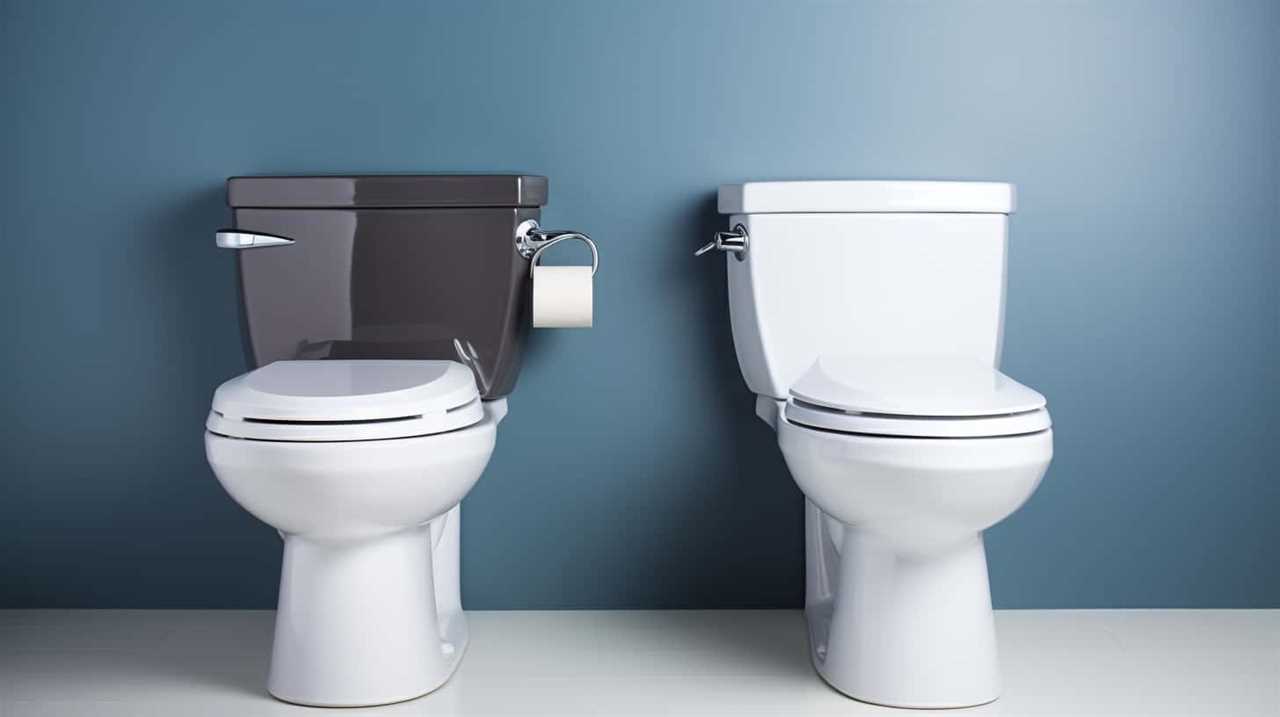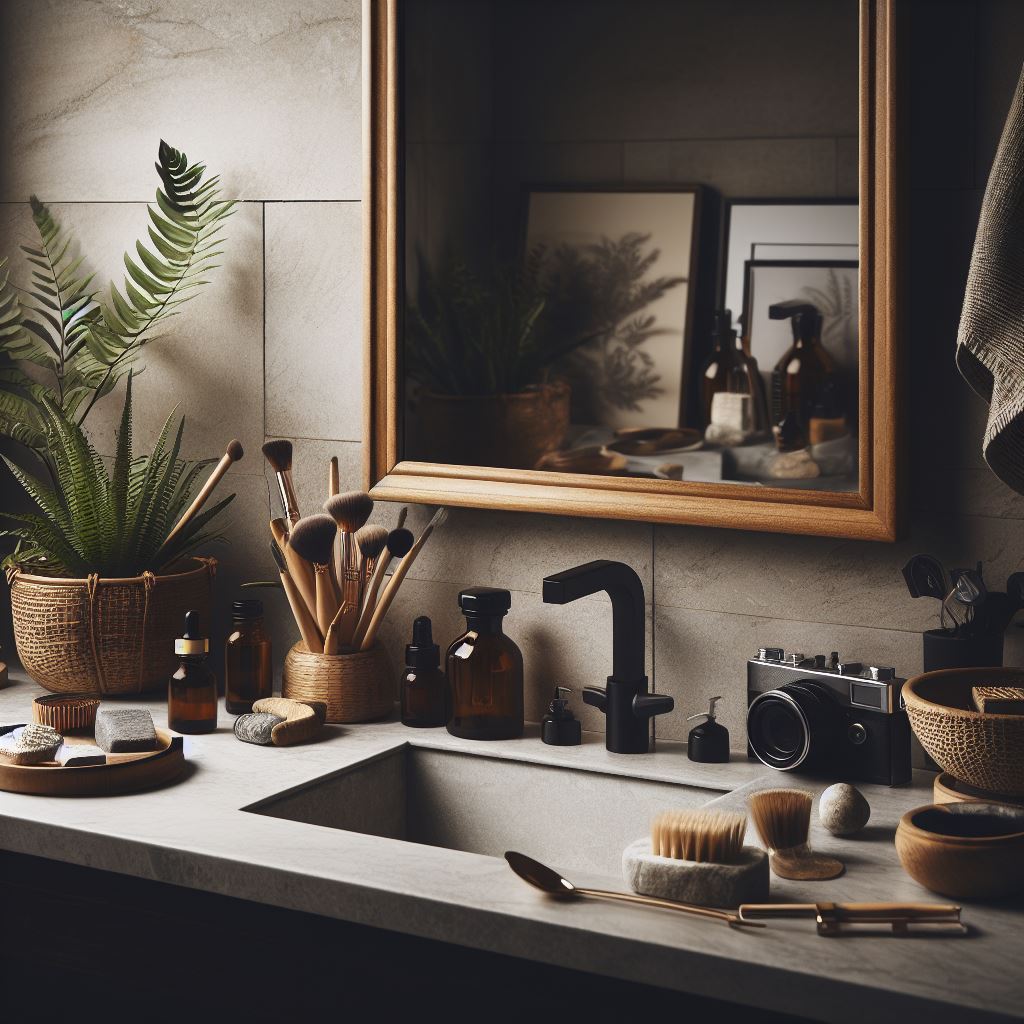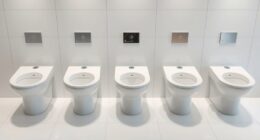Have you ever questioned the safety of taking a bath after eating a meal? We’ve all been told the age-old myth that it’s not a good idea, but is there any validity to it?
In this article, we’ll dive into the origins of this myth and explore the science behind digestion. With evidence-based information, we’ll debunk this common misconception and provide you with the facts you need to make informed decisions about bathing after eating.
So, let’s wash away the myths and get to the truth!
Key Takeaways
- Bathing after eating is a cultural myth with no scientific evidence to support it.
- In fact, bathing after a meal can improve digestion and promote relaxation.
- It is generally safe to bathe after eating, but it is recommended to wait at least 30 minutes.
- It is important to listen to your body and make choices based on how you feel.
The Origins of the Myth
The myth that we shouldn’t bathe after eating originated from a combination of old wives’ tales and cultural beliefs. Cultural beliefs surrounding bathing rituals played a significant role in shaping this myth.

In many cultures, bathing was seen as a ritualistic and purifying act, with specific rules and practices to follow. One prevalent belief was that bathing immediately after eating would lead to indigestion or even death.
Historical practices of personal hygiene also influenced this myth. In the past, people relied on rudimentary methods to maintain cleanliness, such as communal baths or infrequent bathing due to limited access to clean water. As a result, it became customary to wait a certain amount of time after eating before bathing.
However, modern scientific research has debunked this myth, showing no evidence of any negative effects from bathing after a meal.
The Digestive Process Explained
After we eat, our body begins the process of digestion, breaking down the food we consume into smaller molecules that can be absorbed and used for energy. The digestive process is a complex series of events that involves several organs and enzymes working together.

Here are five key points to understand about the digestive process:
- Chewing properly is important because it breaks down food into smaller pieces, increasing the surface area for enzymes to act upon.
- Enzymes play a crucial role in digestion by breaking down complex molecules into simpler ones that can be easily absorbed by the body.
- The stomach produces gastric juices, including hydrochloric acid and enzymes, which further break down food into a liquid called chyme.
- In the small intestine, enzymes from the pancreas and the lining of the intestine continue to break down food, allowing for nutrient absorption.
- The large intestine absorbs water and electrolytes, and helps in the formation of feces.
Understanding the digestive process can help us make informed choices about our eating habits and overall health.
Debunking the Bathing After Eating Myth
Now, let’s address the common misconception about bathing after eating and shed light on the truth.
Many people believe that taking a bath immediately after a meal can lead to health problems. However, there’s no scientific evidence to support this claim.

In fact, bathing after eating can have several health benefits. It can help improve digestion by aiding in the relaxation of the body and promoting blood circulation. Additionally, it can enhance sleep quality and reduce stress levels.
The belief that bathing after eating is harmful may stem from cultural beliefs or old wives’ tales. It’s important to base our practices on scientific evidence rather than cultural myths.
Potential Risks and Precautions
To ensure a safe bathing experience, it’s important for us to be aware of the potential risks and take necessary precautions when bathing after eating. While it’s generally safe to take a bath after a meal, there are a few potential dangers to keep in mind. Here are some medical advice and precautions to consider:
- Avoid bathing immediately after a heavy meal to prevent stomach discomfort or indigestion.
- Wait at least 30 minutes to an hour after eating before taking a bath.
- Take care to maintain a comfortable water temperature to avoid sudden changes in blood flow or blood pressure.
- Be cautious if you have any underlying medical conditions such as diabetes or heart problems, as bathing after eating may affect these conditions.
- Listen to your body and pay attention to any signs of discomfort or lightheadedness, and consult a medical professional if necessary.
The Bottom Line: Bathing After Eating
Taking a bath after eating is generally safe, but it’s important to be mindful of potential risks and precautions.

While there’s no scientific evidence to suggest that bathing immediately after a meal will negatively impact digestion, some experts recommend waiting at least 30 minutes to allow the body to properly digest food. This is because digestion requires energy and blood flow, and immersing oneself in warm water may divert blood flow away from the digestive system, potentially slowing down the process.
However, if you feel comfortable and have no digestion-related issues, taking a bath after eating can actually have some benefits. Bathing can promote relaxation and relieve stress, which can indirectly support digestion by reducing the production of stress hormones that can interfere with the digestive process.
Ultimately, it’s important to listen to your body and make choices based on how you feel.
Frequently Asked Questions
Can Bathing After Eating Lead to Indigestion or Stomach Discomfort?
Bathing after a meal can potentially lead to digestive problems and discomfort. It may be necessary to wait a certain amount of time before taking a bath after eating to allow for proper digestion.

Is It True That Bathing After a Meal Affects Nutrient Absorption?
Bathing myths often circulate regarding post-meal activities. However, there is no scientific evidence to support the claim that bathing after a meal affects nutrient absorption. It is safe to bathe after eating.
Are There Any Specific Time Frames to Wait Before Taking a Bath After Eating?
When it comes to bathing etiquette and rituals, it is important to consider the timing. While there are no specific time frames to wait before bathing after eating, it is generally recommended to wait at least 30 minutes to allow for proper digestion.
Can Bathing After a Meal Cause Weight Gain or Hinder Weight Loss Efforts?
Bathing after eating doesn’t directly cause weight gain or hinder weight loss efforts. However, engaging in post meal activities like walking or light exercise can aid digestion and promote weight loss.
Does the Temperature of the Water Used for Bathing After Eating Have Any Impact on Digestion?
Water temperature may have a minimal impact on digestion after a meal, as the body’s core temperature remains constant. However, bathing immediately after eating can potentially affect nutrient absorption, so it’s best to wait a while before taking a bath.

Conclusion
In conclusion, it’s clear that the myth of not being able to bathe after eating is just that – a myth. The digestive process isn’t affected by bathing, and there are no scientific reasons to avoid it.
However, it’s always a good idea to take precautions and wait a short while after eating before taking a bath, especially if you have a medical condition.
So go ahead and enjoy your meal, and don’t worry about the exaggerated claims of dire consequences if you take a bath afterwards.










